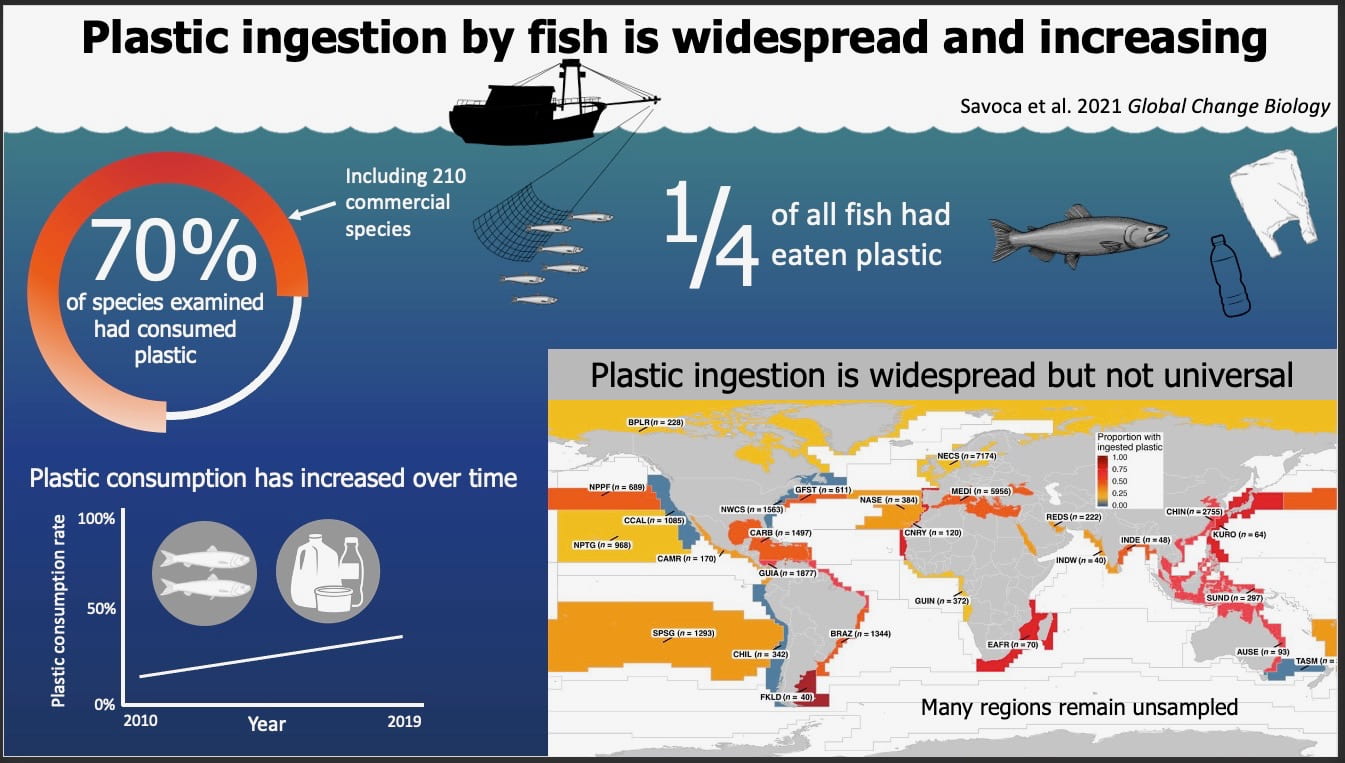Out today in Movement Ecology, we show that when generating absences for presence-only data, there are a suite of approaches available to use and the method may not be as important as appropriately sampling the background environment in a way that matches your hypothesis. We explored this both in marine and terrestrial ecosystems using blue whales and African elephants as study species – many of the patterns persisted. One of our major findings was that global models may benefit from background sampling – but when movement is constrained, background sampling should be limited to the environmental niche space of the presences, or other approaches that similarly sample the environmental niche space should be explored. The other big takeaway from the study is that model approach (e.g. generalized additive mixed models vs. boosted regression trees) may be more important than the method of absence generation. Read more at the link below.
E.L. Hazen, B. Abrahms, S. Brodie, G. Carroll, H. Welch, S.J. Bograd, 2021. Where did they not go? Considerations for generating pseudo-absences for telemetry-based habitat models. Movement Ecology 9, 5. DOI: 10.1186/s40462-021-00240-2. PDF

